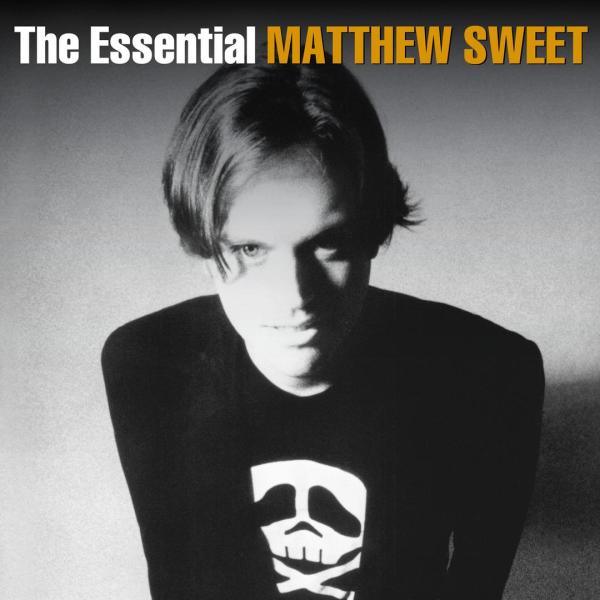BY JONATHAN VALANIA In advance of his appearance at the Haverford Music Festival on Saturday September 9th, we got power-pop legend Matthew Sweet on the horn. DISCUSSED: making Girlfriend, life in Athens GA circa 1983, Richard Lloyd, leaving Los Angeles, Robert Quine, moving back to Nebraska, Michael Stipe, Kickstarter, teaching Peter Buck the chords to “Femme Fatale,” Tomorrow Forever.
PHAWKER: Honor to speak with you, long time fan. Actually, I was getting my start in 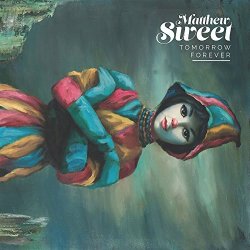 journalism when Girlfriend came out; I was working for the Allentown Morning Call. I think it was Altered Beast that came out when we actually spoke. I’m sure you haven’t forgot about that conversation, and think about it everyday and I’m calling to tell you to get over it, it’s time to move on with you life, Matthew!
journalism when Girlfriend came out; I was working for the Allentown Morning Call. I think it was Altered Beast that came out when we actually spoke. I’m sure you haven’t forgot about that conversation, and think about it everyday and I’m calling to tell you to get over it, it’s time to move on with you life, Matthew!
MATTHEW SWEET: [laughs]
PHAWKER: In all seriousness, the new record sounds really good. You have not lost a step at all—the guitar playing is still really sharp and blazing, and your voice is as good as it was 30 years ago; and I always thought you sang like an angel. You used Kickstarter to finance the recording, can you talk a little bit about the Kickstarter financing model and the advantages and disadvantages, compared to the old-school, major label plantation business model?
MATTHEW SWEET: Well, you know, it’s different in the sense—I think the difference about the thing you do with a Kickstarter campaign for instance, you get a certain amount of funds that you’ve raised, and I think that the Kickstarters themselves even forget that that’s not money, that you’re just making that money. You have to pay for everything that’s been promised, and so, as a way to make money, I don’t think, maybe, it’s the best way—unless you were able to raise huge amounts. For me, I started with a modest goal, and we outweighed that goal, so we were happy. But in my case, it took me kind of a long time to deliver the fulfillment of the Kickstarter, and so, stretching that over time is kind of like working of something without making money until the afterwards. The great thing is that I can take the record and be able to release it through Sony Red, and, they’re doing a great job for it. And so, talking about the economic model, that’s sort of the hope, that if we can sell enough to make some profits.
PHAWKER: And, quick side question on streaming: my general impression is that most artists find it unfavorable, and a fraction of the revenue that you would receive from hard copy sales; what are your thoughts on that?
MATTHEW SWEET: Well, yes, that’s unfortunate. For me, I’ve always wished that music would 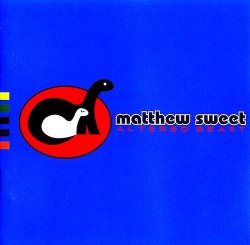 be free, and that we could somehow make money some other way, like, through a benefactor. And we could make music that anyone can have, you know? So, part of me, I like the idea of streaming and, you know, I use Apple Music, and when I just think of something that minute I can go and find it easily, and check it out. For making money, and for artists—and sure the general thinking is right that we don’t make as much money from it and it takes away from selling—but you know we still have to sort of sell to the amount of people who seem to pay for their own personal ownership of the music.
be free, and that we could somehow make money some other way, like, through a benefactor. And we could make music that anyone can have, you know? So, part of me, I like the idea of streaming and, you know, I use Apple Music, and when I just think of something that minute I can go and find it easily, and check it out. For making money, and for artists—and sure the general thinking is right that we don’t make as much money from it and it takes away from selling—but you know we still have to sort of sell to the amount of people who seem to pay for their own personal ownership of the music.
PHAWKER: A few years ago you moved back to Nebraska from whence you came, packing up your Hollywood Hills home heading back to flyover country—what prompted that decision and how is that working out for you?
MATTHEW SWEET: Well you know we have had this house where, over the time you’ve lived there it had sort of tripled in value and it has sort of become our nest egg, and we have always been planning on cashing in on it at some point and when the recession happened, it went quite a bit down in value. So we had it in our heads when it gets to a certain amount again—which took many years—that we would then think about selling it. And, we were ready to have some kind of change, move somewhere, and we were planning on it. We thought of lots of places more exotic than moving to Nebraska. We thought we wanted to go to Hawaii, or way on the way remote North California coast. But the problem was that it didn’t make much sense for my work not being anywhere near airports or being far away somewhere like Hawaii, and having more difficulty for our families, here in the States, who are pretty far apart. And I don’t know, I guess at some point my wife said let’s look at something in Nebraska, and then it was kind of fun looking around to see what we could find; and then we found this house we really liked in Omaha, and flew out there to check it out, and it just happened kind of quickly. We had a realtor who, himself decided he wanted to buy our house. So we negotiated instantly with this guy and were able to move really quickly. So it was kind of magical how it happened.
PHAWKER: Did you have any famous actor neighbors?
MATTHEW SWEET: Famous neighbors—I’m trying to think. I know that we did…
PHAWKER: Like Jack Nicholson, I know he lived in the area.
MATTHEW SWEET: Oh Jack Nicholson, no [laughs]…
PHAWKER: And Marlon Brando, that would’ve been awesome…Okay, let’s move on: Girlfriend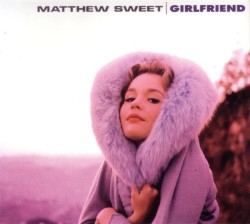 , still awesome album, one for the ages. I’m sure you’re getting tired of being asked questions about it—but nonetheless, I have you on the phone, I’m a huge fan and have to ask you these questions. Tell me something that nobody knows about making that record, or writing that record, or recording that record—or, why do you think the stars aligned on that and you know, the light shined on you at that moment.
, still awesome album, one for the ages. I’m sure you’re getting tired of being asked questions about it—but nonetheless, I have you on the phone, I’m a huge fan and have to ask you these questions. Tell me something that nobody knows about making that record, or writing that record, or recording that record—or, why do you think the stars aligned on that and you know, the light shined on you at that moment.
MATTHEW SWEET: Well I mean that’s really hard to answer, you kind of asked two questions: one was tell me something nobody knows, and then I was starting to think about concrete like, maybe people don’t know that the record was recorded in batches of three songs. We would record for a few days, and then I would go home and rest, and then we would pick another three. And that also allowed me to write more, incase something bumped something and came out of it…That’s something that I don’t think many people know, that it was made in several batches of recordings.
PHAWKER: And where in the writing process did “Divine Intervention” come?
MATTHEW SWEET: “Divine Intervention” I think I had had for a while. It was during a demo I had had for awhile—I think it was one of the earliest, that would be one of the earliest songs that I had for that record.
PHAWKER: And getting Richard Lloyd and Robert Quine to play on that record—was that the plan all along? How did you get them ending up on the record?
MATTHEW SWEET: It was because there were people I knew and have worked with—I met Quine through Fred Mar who I was good friends with and we produced the record together. And he knew Bob from the Voidoids—I did know all those records so it was excited, I mean I thought this is somebody really cool you know. And Bob had this thing where he really sort of liked The Birds—things that are poppier than you’d think he’d be into. And so, he came in kind of doing almost more jangly stuff on the record before Girlfriend, and Richard Lloyd I met when I was playing for The Golden Palominos, and he filled in for our guitar player. And we were kind of friendly and we met up at some point and he played along to some demos of mine and then he ended up playing on that record before Girlfriend as well. So I had known them a little while. Richard’s guitar playing really hit this sort of blues rock end of things, and Bob’s guitar playing was more esoteric, sort of jazz, and like, almost this folky kind of viewpoint from things that he was inspired by.
PHAWKER: And, in more simple terms, was Richard Lloyd playing the more “raunchier” sort of leads and rhythm parts, and Quine was playing the more ringing and jangly parts…
MATTHEW SWEET: Well Quine also played artsy—like the solo on “Girlfriend” was sort of a 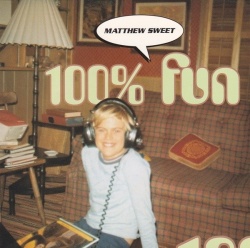 jazzy, artsy thing—art rock. Richard plays lead on on “Divine Intervention,” and it’s more of that piercing blues kind of rock.
jazzy, artsy thing—art rock. Richard plays lead on on “Divine Intervention,” and it’s more of that piercing blues kind of rock.
PHAWKER: Okay, and, speaking of “Divine Intervention,” the decision to go with the long “Strawberry Fields”-like outro, was this improvised? Was this planned all along? Kind of doing all of the “Strawberry Fields” feedback…
MATTHEW SWEET: It was not a plan all along, I think we were just playing and probably, Jim Rodinelli, the engineer, faded it in and out, we were all just sitting there coming up with ideas—I don’t really remember—but that stuff, the beauty of it was that it wasn’t planned. We liked it because it was kind of, natural.
PHAWKER: And is that you doing all of the background vocals on that song?
MATTHEW SWEET: Yes, I did all the background vocals on that whole record.
PHAWKER: The background vocals are drop-dead gorgeous. Okay, one more quick question and I’ll let you go. Can you tell me a good R.E.M. story in Athens circa ’83, ’84, or maybe not even an R.E.M. story, just something good from that era…
MATTHEW SWEET: Yeah I’m trying to think of a good story…
PHAWKER: Did you hang out a lot at 40 Watt, I’m guessing…
MATTHEW SWEET: Okay okay, I can tell you this: I knew Michael, he sent me some postcards after I met him when I was in high school in Lincoln Nebraska, so when I lived in Athens I had sort of known those guys for a little bit. And so Michael asked me one day to learn a couple Velvet Underground songs off of a record. It’s funny, I don’t know how he knew I could do that. I had originally learned, I was a base player, and would listen to records and learns things from them. So, I guess it was something that was pretty natural for me to do, to learn something off a record by ear. And so Michael had this idea for me to do it. And so I learned “Pale Blue Eyes” and, maybe, “Femme Fatale.” And so, what Michael wanted me to do was go over to Peter’s house and show Peter those songs. So it was sort of like I learned them, and I went over there, and I can’t remember much about it, but I went over there and showed him the chords of those songs. I don’t know why I did it but then what happened was they were doing a big show at the University of Georgia—and this was a big outdoor show—and this was just when they were starting to make it, and I ended up going on stage with them and playing guitar to those songs—the Velvet Underground cover. So they did sort of give public credit for being involved somehow. I don’t remember much else around it, but it’s kind of an interesting story.
MATTHEW SWEET PLAYS THE HAVERFORD MUSIC FESTIVAL SEPTEMBER 9TH

